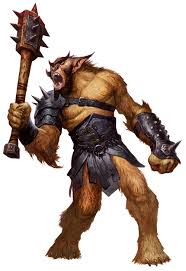
记忆方法
将“bugbear”分解为两部分记忆:“bug”代表一种小虫子,容易让人感到烦恼,“bear”代表熊,象征着强大和威力。想象一只小虫子引起你极大的不满,就像熊一样令人畏惧,这样可以帮助你记住“bugbear”这个单词,它表示某人或某事让人极其烦恼或害怕。
以上内容由AI生成, 仅供参考和借鉴
中文词源
bugbear 烦扰之事
bug, 鬼怪。bear, 熊。一种像熊的吃小孩的妖怪,很可能是大人杜撰出来吓小孩的。
英语词源
- bugbear
-
bugbear: [16] Early references to bugbear suggest that it was a sort of bug – ‘frightening creature’ – conjured up to frighten naughty children. It is usually assumed that the second element of the word simply represents the animal ‘bear’, and that the frightening creature was represented as being in the shape of a bear. The modern sense ‘source of annoyance’ developed in the late 19th century.
- bugbear (n.)
- 1580s, a sort of demon in the form of a bear that eats small children, also "object of dread" (whether real or not), from obsolete bug "goblin, scarecrow" (see bug (n.)) + bear (n.).
权威例句
- 1. Inflation is the government's main bugbear.
- 通货膨胀是政府最头痛的问题。
- 2. Inflation is the Government's main bugbear.
- 通货膨胀是政府的主要难题.
- 3. Money is my biggest bugbear.
- 我最愁的是钱。
- 4. University reform had long been his bugbear, and now was his bane.
- 大学改革早就是使他头痛的事情, 如今更成为他的祸害了.
- 5. The rise of moralism was a bugbear to Lord Byron , born in 1788.
- 道德主义的盛行对拜伦来说无疑是一场灾难.